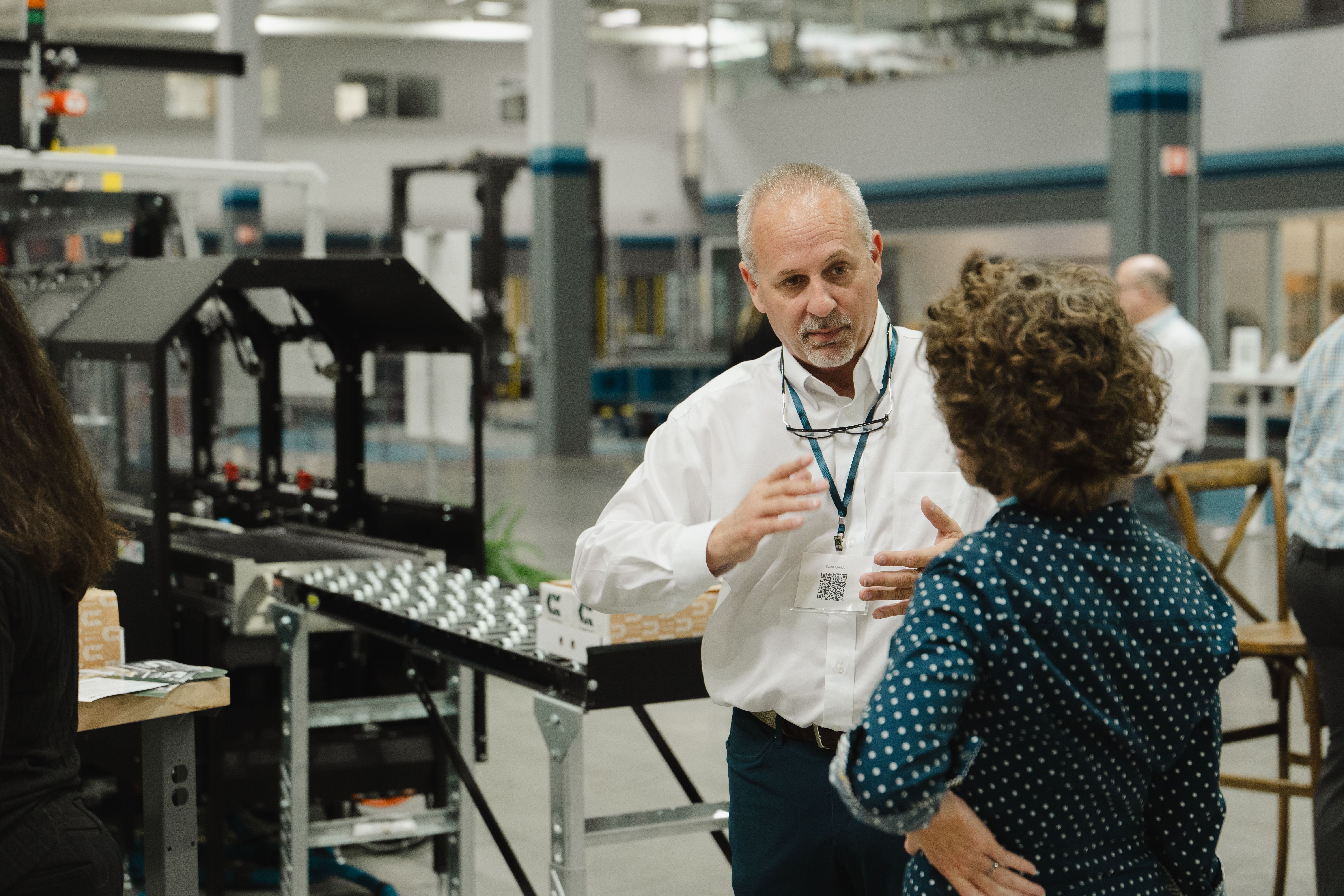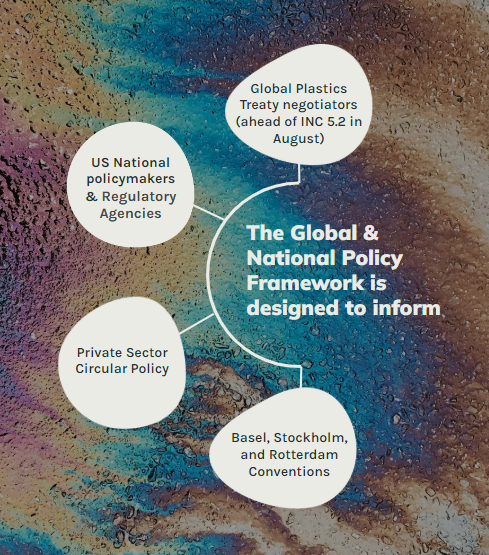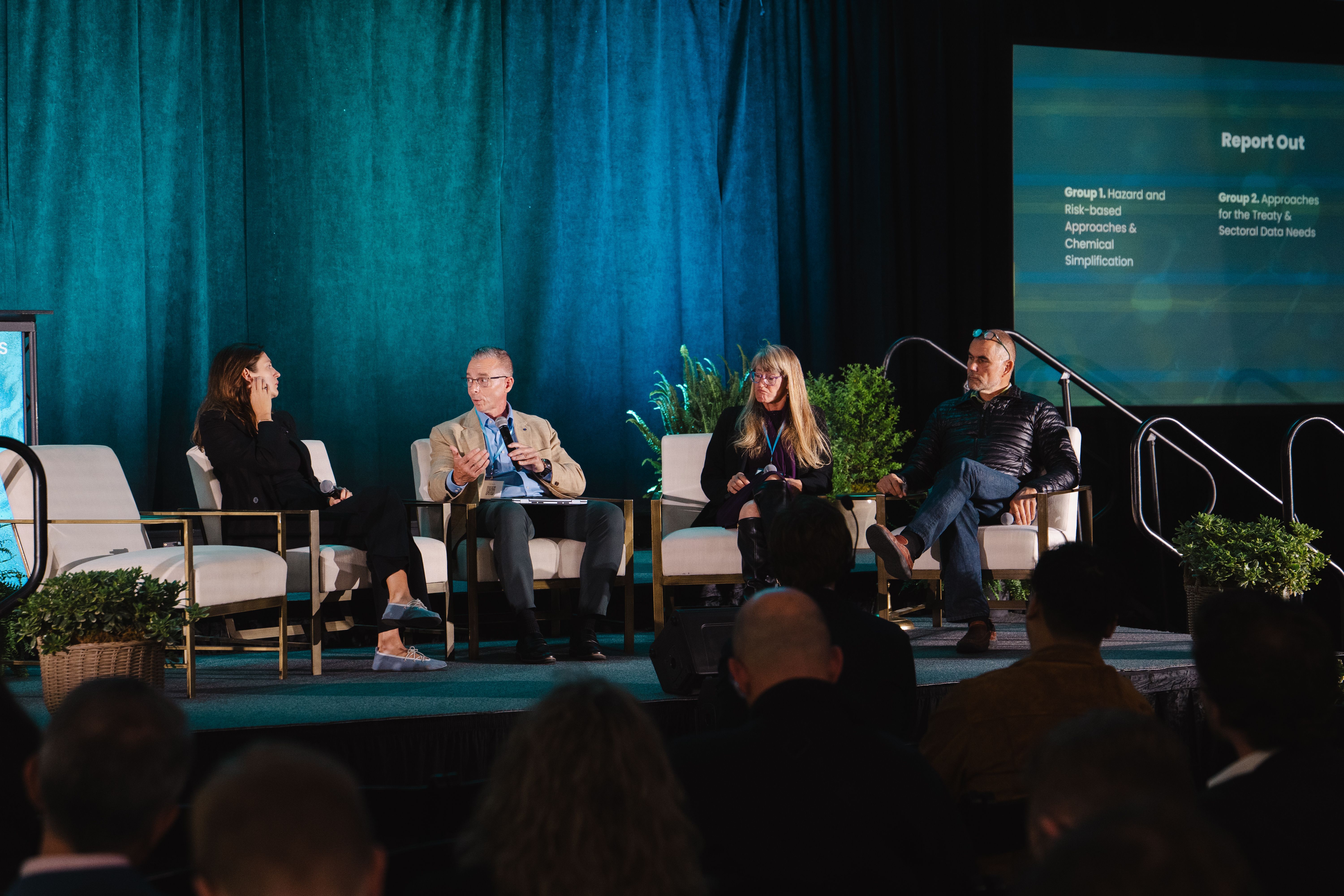APLN's First 2025 Plenary - May 29
Report-Out from Chemicals of Concern Policy Summit & Next Steps
The first virtual plenary will report out from the Chemicals of Concern Policy Summit to share insights from the discussions and next steps for the development of a Global & National Policy Framework on Chemicals of Concern -- the Guidelines for Chemicals of Concern focused on plastic alternatives and non-plastic substitutes.


Plenary Program
This plenary will share insights and discussions from the Chemicals of Concern Policy Summit:
- April 22: Technical day targeted for packaging value chain representatives, NGOs, and scientists.
- April 23: Open Session also including U.S. policymakers, regulatory agencies, and media.
This plenary will also launch the stakeholder input process for the development of a Global & National Policy Framework on Chemicals of Concern for Plastic Alternatives & Non Plastics Substitutes.
The full program, including speaker details, will be posted here and in the calendar invite shared with confirmed attendees ahead of the event.
In response to the summit, APLN is calling on stakeholders across the value chain to join the development of Global & National Policy Framework on Chemicals of Concern for Plastic Alternatives & Non Plastics Substitutes. This work builds upon OPLN's 2024 Harmonized Safety & Sustainability Criteria.
The output, complemented by stakeholder submissions, will be shared by July 10th, 2025 with U.S. regulatory agencies, companies across the packaging value chain, UNEP, Global Plastics Treaty Negotiators from around the world, and aligned parties from the Basel, Rotterdam, and Stockholm (BRS) chemical conventions.
The Framework's scope includes:
1. Approach to the use of existing Regulatory Frameworks and Conventions on Chemical Management
- Global: Provide recommendations on the international regulations such as REACH and BRS conventions to identify science-based best practices for assessing Chemicals of Concern in plastic alternatives.
- National: Provide recommendations on management of chemicals of concern at the federal level including US policies, regulations, and regulatory agencies (EPA, FDA, and others)
2. Development of Practical Science-Backed & Business-Viable Approaches to Management of Chemicals of Concern
- Global & National: Provide recommendations for addressing chemical composition in alternative materials to enhance safety and sustainability.
- Global & National: Provide recommendations for legal and economic incentives required for acceleration of chemical management
It is not our intent to dictate where this multi-stakeholder output should live — but rather to create a neutral, educational resource and approach that reflects the perspectives of all sides, and helps clarify where each stands on this profoundly important issue.

This is an event open to OPLN members and category experts. Please complete formal registration through the link provided in your email invitation.
If you would like to be involved in this event, the APLN network, or OPLN membership, please complete our Learn More form and the right team member will be in contact - we look forward to connecting.
